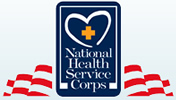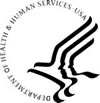This year's NHSC Scholarship application deadline has passed. Applicants selected to receive the scholarship will be notified by September 30.
![]() Sign up to be notified by e-mail when the application for the 2010-2011 school year is available.
Sign up to be notified by e-mail when the application for the 2010-2011 school year is available.
The National Health Service Corps scholarship pays tuition, required fees, and some other education costs, tax free, for as many as four years. Education costs may include books, clinical supplies, laboratory expenses, instruments, two sets of uniforms and travel for one clinical rotation.
Recipients also receive a monthly living stipend ($1,269 in 2009-2010). The stipend is taxable.
Am I Eligible?
- U.S. Citizen or National [+]
- Enrolled or Accepted for Enrollment [+]
- Pursuing An Eligible Degree In An Accredited Program Located in the U.S. (joint programs that provide dual degrees are not eligible):
What is the Service Commitment?
National Health Service Corps scholars are committed to serve one year for each year of support (minimum of two years service) at an approved site in a high-need Health Professional Shortage Area soon after they graduate, serve a primary care residency (family medicine, general pediatrics, general internal medicine, obstetrics/gynecology or psychiatry for physicians and general or pediatric for dentists) and are licensed.
Scholars compete for employment at the approved service sites of their choice from a listing of job vacancies in their discipline and specialty. The NHSC helps scholars select a compatible service site and pays for travel to and from interviews.
Where do Scholars Serve?
Many types of health care facilities are approved NHSC sites. About half of NHSC scholars fulfill their service commitment at Federally-supported health centers. Health center clinicians can be granted medical malpractice liability protection through the Federal Tort Claims Act.
Other types of NHSC approved sites include rural health clinics, Indian Health Service clinics, public health department clinics, hospital-affiliated primary care practices, managed care networks, prisons, and U.S. Immigration, Customs & Enforcement sites.
Scholars negotiate their salaries with the employing site, but the NHSC requires that they be paid at least as much as they would in an equivalent Federal civil service position. A few scholars serve in an established private practice in a high-need Health Professional Shortage Area. These arrangements must be approved by the NHSC and scholars working in them are not protected by the NHSC minimum salary requirement.
All NHSC approved sites accept Medicare, Medicaid and provide services on a sliding fee scale or other method that enables poor and uninsured patients to receive care whether or not they are insured or able to pay.
Sites that have applied to and been approved by the NHSC post vacancies on NHSC Job Opportunities. Sites that list vacancies for scholars must be located in the neediest Health Professional Shortage Areas (this year, a HPSA score of 14 or higher, depending on discipline and specialty).
Scholars fulfill their service commitments by providing full time clinical care (at least 40 hours each week), with at least 32 of those hours in the ambulatory care setting. (Except obstetricians/gynecologists, certified nurse-midwives, and family practitioners who practice obstetrics on a regular basis, who must work in outpatient clinical practice at least 21 hours per week with delivery and other clinical hospital-based duties making up the remaining 19 hours.



